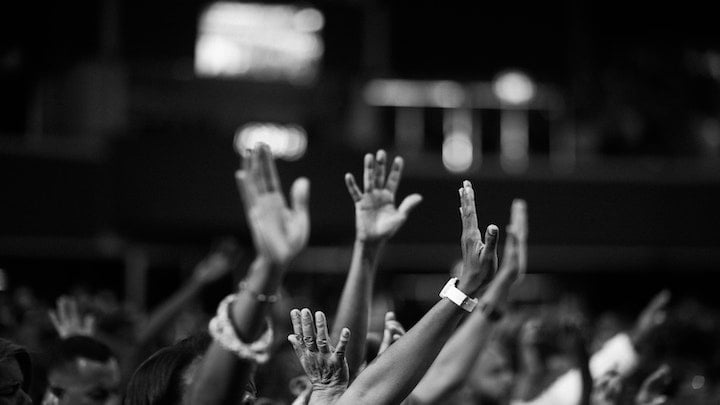- Home
- Addiction Guides
- What is an Addiction Intervention?
What is an Addiction Intervention?
Interventions are events designed to help the addicted individual recognise their unhealthy behaviour and seek treatment. They are carefully prepared gatherings of those closest to an individual, with each attendee working to communicate the severity of the situation.
The goal of these gatherings is to make an individual understand why they need help and motivate them to seek it in the form of professional rehab. They have been found to massively reduce more serious addictions from developing [1].
Every intervention can look different, adopting its own approach and style depending on what will be most effective for the individual in question. However, many interventions tend to follow the same fundamental components.
These are:
- Sharing with the individual several examples of when their behaviour has been dangerous or has impacted another person
- Highlighting where the individual can seek appropriate addiction treatment and how they can go about doing this
- Explaining what each attendee will do to incentivise recovery – can involve both support throughout rehab or consequences for not seeking help
The stages of an addiction intervention

Interventions are incredibly intricate events, and they are difficult to arrange and successfully pull off. This is because there are several stages involved in the intervention process.
Doing the research
Before an actual event can be arranged, it is important to collect as much information as possible when it comes to both an individual’s specific addiction and the condition of substance abuse in general.
Individuals will need to know what behaviours are resulting from substance abuse, what the condition can possibly be caused by, and how it might be supported. This information, along with that regarding where to get help, will be instrumental for a successful intervention.
In addition to all of this, it is also important to collate information about how each attendee has been influenced by the individual’s condition. Interventions need to demonstrate how addiction has become a problem and get as many examples as possible is essential.
Inviting attendees
Once the fundamental information has been collected, there needs to be a thorough and careful invitation process. While it may sound simple, it is important that this stage is executed correctly.
Firstly, there is the matter of who to invite. The most effective way to get through to someone who is addicted is to have them hear about the problem from people they love and trust. Very close family and friends are therefore the perfect people to invite.
It might also be important to consider who might have the most to say. Those who have been directly impacted by the addiction are the best to invite as they will have much more to say in terms of why an individual needs to seek help.
Secondly, there is the question of how many people to invite. Here, a fine balance needs to be achieved. Enough people need to be invited in order to give the event some validity, but it is also important not to overwhelm the individual with a room full of people.
There is no perfect amount for every instance, but always consider what number of people is enough to make the point.
Establishing consequences and commitments
The notion of telling an individual that they need to get help is all well and good, but what happens if they don’t comply? Preparing for what comes after an intervention is very important.
In the event of an intervention going to plan, each attendee needs to establish how they can support the individual going forward. This needs to be discussed and agreed upon, and everyone needs to know what they are to do.
If, on the other hand, the individual rejects everything that is said to them, there needs to be consequences for them making that decision. Attendees also need to prepare ways in which they will punish the individual for continuing their substance abuse.
The goal of this is to apply pressure on them to seek help. Consequences can take the form of a lack of financial support, not being able to see certain family members or lack of contact.
The event itself
Once all preparations are made, it is time for the intervention to take place.
The individual is usually debriefed as to what is going on and asked to listen to what the group has to say. Everyone says their piece and the options for treatment are explained.
Following through with promises
Regardless of how the intervention has gone, the weeks and months afterwards are incredibly important as this is the time period where attendees of the intervention will need to follow through on the commitments they made during the event.
If the individual agrees to seek treatment, attendees need to offer them support and guidance in the ways they promised to. If the individual rejects the intervention, the consequences outlined need to be carried out.
This period of time is pivotal when it comes to an individual staying in treatment or changing their minds to seek it. Attendees of intervention need to be consistent and work together, acting as a single unit to make an individual feel that rehab is the right choice.
When is an intervention necessary?

Equally important to know how to carry out intervention is knowing when to do so. Holding one for someone who actually doesn’t require one can be incredibly embarrassing or shameful, and not holding one for someone who needs one can be dangerous.
Interventions are necessary when an individual seems to have a substance abuse problem but isn’t taking action to treat or reduce it.
As a result, an event should only be conducted if an individual exhibits some of the following behaviours without getting treatment or acknowledging they have a problem [2]:
- Using a substance every day or in excessive quantities
- Lying or being secretive about substance use
- Borrowing money and not explaining why
- Acting recklessly or aggressively
- Experiencing issues at work or school
- Frequent health issues
- Reduced interest in hygiene and appearance
- Experiencing withdrawal when sober
Can you get help with arranging an intervention?

Addiction interventions take a lot of effort and organisation. Because of this, some people may feel like they cannot have one for their family member or friend, but there are sources of support out there.
When organising an intervention, the services of a professional interventionist can be sought out. These are experts in holding interventions who can supply advice, guidance, and a helping hand in the following areas.
Planning and prepping
A lot of work goes into arranging an intervention. Deciding where to hold the event, when to hold it, and who to invite can be really difficult, but a professional interventionist can provide support here.
They can help find a suitable venue, facilitate communication between attendees, and even take the lead when uniting and briefing everyone as to what the event will be like and what everyone will need to do.
Maintaining the right tone
When an intervention gets going, the addicted individual can become annoyed or defensive very quickly. They can ignore what is being said to them and become aggressive, and this can lead to attendees of the event getting frustrated.
In order to prevent the intervention from losing its way, a professional interventionist can step in here to maintain a supportive tone and keep the objective of the event in mind.
Getting the point across
To convey how serious the individual’s substance abuse is, a professional interventionist can be very helpful in terms of explaining and justifying why the intervention is taking place.
In addition, their presence at the event can lend it credence, making the individual unconsciously aware of how serious things are if a medical professional has come to see them.
Important things to keep in mind when organising an intervention

Holding a successful intervention that gets the individual in question to agree to treatment is all about getting the small things right.
Here are some important things to consider for arranging the best intervention possible:
- Keep it personal – Only invite close family and friends. Inviting someone who the individual does not like or does not trust with personal information will destabilise their ability to be truthful.
- Rehearse – Leaving it until the day to meet up and go over what everyone will say is a sure way to make the event sloppy and unstructured. Meet up beforehand to get it right and ensure that everyone knows exactly what to expect.
- Don’t leave without an answer – At the end of the intervention, demand an answer from the individual, regardless of what it is. If they say they will think about it, the urgency of the intervention fades, allowing them to slip back into bad habits.
Getting help from Rehab Recovery
If you want to hold an intervention for a friend or family member and need help, reach out to us at Rehab Recovery!
We know how difficult the process can be, and that’s why we’re here to offer information about both interventions and what addiction treatment options are available in your local area.
Get the information you need to help your loved one and call us on 0800 088 66 86.
References
[1] https://www.ncbi.nlm.nih.gov/books/NBK424859/
[2] https://www.mentalhealth.gov/what-to-look-for/mental-health-substance-use-disorders




